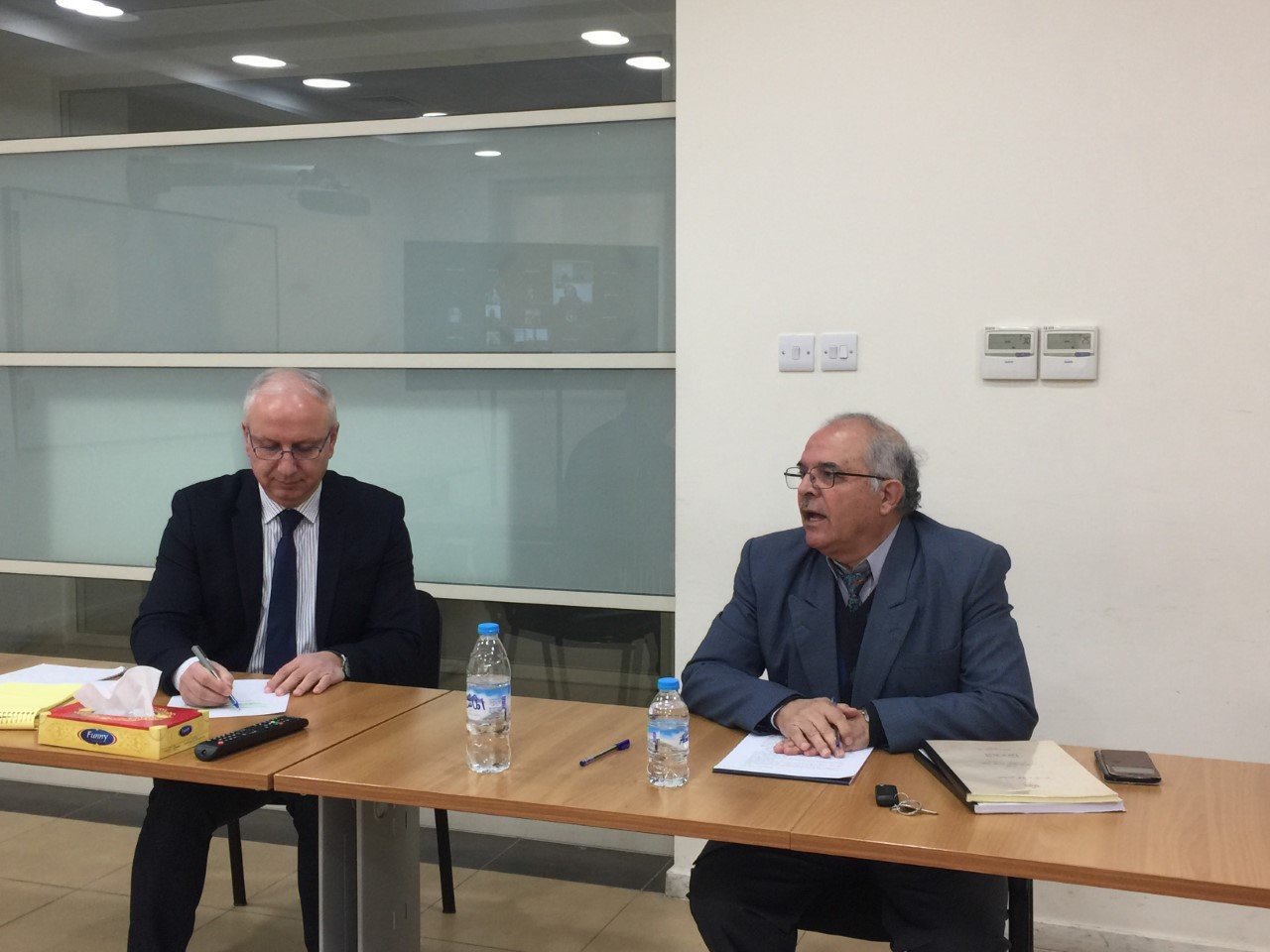
Jordan Media Institute - Amman
Dr. Walid Abdel Hay, a political scientist specializing in futures studies, said that press freedom indices are a form of soft power for states, as they demonstrate a state’s ability to cultivate an environment that is attractive to investors, tourists, and foreign students.
In an online meeting with students at the Jordan Media Institute (JMI), Abdel Hay said there is usually controversy on the crediblity of the results of press freedom indices, yet the convergence of the results of the indices published by different entities by over 80% indicates a high level of credibility.
Abdel Hay, who has worked as an advisor to the Higher Media Council (HMC) and the Jordanian Ombudsman Bureau and served on the Board of Trustees of the National Centre for Human Rights, presented a detailed survey of a number of models assessing press freedom from Europe, the United States, Africa, the Arab world, and Jordan. These models included studies by Freedom House, Reporters Without Borders, the US-based IREX organization (International Research & Exchanges Board), and the African Media Barometer, in addition to a model developed by the HMC in 2004.
Dr. Abdel Hay has published 37 books and 138 studies in scientific journals, in both Arabic and English, and supervised approximately 100 master’s and doctoral theses. He explained that despite minor differences in some of the models for measuring press freedoms, such as in their sub-indicators, methodologies for gathering and evaluating information, and the number of countries they covered, none of these models ranked Jordan as a "free" country when it comes to freedom of the press.
The speaker clarified that about 60% of the press freedom indices found Jordan to be "not free," while around 40% of them found it to be "relatively free.” These assessments were made in reference to the frequent interference (to varying degrees) by state authorities and society in the work of the media.
On the importance of improving press freedom, Dr. Abdel Hay noted that many countries, especially those in northern Europe, tie the aid they give to other countries to the degree of freedoms therein. Furthermore, he said, some United Nations agencies make their aid, knowledge exchange initiatives, and conference invitations conditional upon political and social freedoms, including the freedom to form and operate professional and trade unions.
Reports on press freedom form one way to apply pressure on states, according to Dr. Abdel Hay, as it bears on their reputations as attractive environments for investment. A reduction in the practice of political freedoms is usually associated with reduced economic freedoms and the spread of corruption, which in turn alienates investors. Furthermore, Dr. Abdel Hay added that the image of a country that people have in their minds shapes influences their decision to choose it as a touristic destination, just as it affects how other countries deal with that country.
Dr. Abdel Hay, who has worked in a number of universities and institutions in the Gulf, the Maghreb, and the Levant and headed the Department of Political Science at Yarmouk University, and served as a member of the Board of Trustees of Al-Zaytuna and Irbid universities, refuted claims that the unrest which some countries across the region witnessed during the "Arab Spring" was related to the extent of internet and social media usage in those countries.
He explained that an in-depth study that he conducted on 20 Arab countries had shown that there is not correlation between the two factors under study.
Dr. Abdel-Hay explained to the students that futuristic studies, also known as prospective studies, consider all choices and indicators relevant to the subject under study. He added that these studies measure the probability of each of these indicators, but are not concerned with the decisions by executive authorities in selecting the appropriate choice. Strategic planning, on the other hand, is based on setting goals and researching the best choice that will better enable achieving these goals.
However, according to Dr. Abdel Hay, the success of prospective studies depends on the accessibility to official information and documents, as well as the freedom for researchers and confidence in their expertise on the part of decision-makers. He added that scholars and experts in the Arab world are a powerful tool that must be further utilized for the good of their countries.



